- BY CJ McKinney

200 Europeans a day applying for British citizenship amid Brexit fears
THANKS FOR READING
Older content is locked

A great deal of time and effort goes into producing the information on Free Movement, become a member of Free Movement to get unlimited access to all articles, and much, much more
TAKE FREE MOVEMENT FURTHER
By becoming a member of Free Movement, you not only support the hard-work that goes into maintaining the website, but get access to premium features;
- Single login for personal use
- FREE downloads of Free Movement ebooks
- Access to all Free Movement blog content
- Access to all our online training materials
- Access to our busy forums
- Downloadable CPD certificates
The June 2016 vote to leave the European Union has already had a major impact on Europeans living in the UK. Even though Brexit has not actually happened yet, there are now far fewer EU citizens coming to live in the UK than before the vote, and those already here have rushed to get residence documents and take up British citizenship.
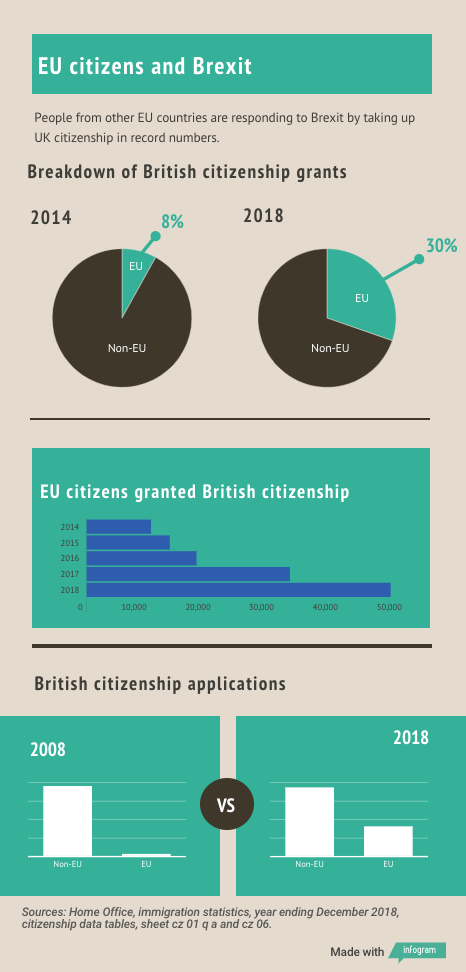
Take net migration. This is an official estimate of the number of immigrants coming to live in the UK, minus the number of emigrants. While well-known data problems mean that the figures are far from exact, the latest estimate is that overall net migration to the UK was 258,000 over the last 12 months.
Within that total, there has been a considerable drop in net migration from the EU since the Brexit referendum, with more European migrants leaving and fewer arriving. At its peak just before the vote in mid-2016, EU migration was adding around 190,000 people a year to the UK population. That has fallen to 74,000 in the past 12 months (although the margin for error is 36,000 either way). The Office for National Statistics says that more “E8” citizens from central and eastern Europe left the UK than arrived in 2018.
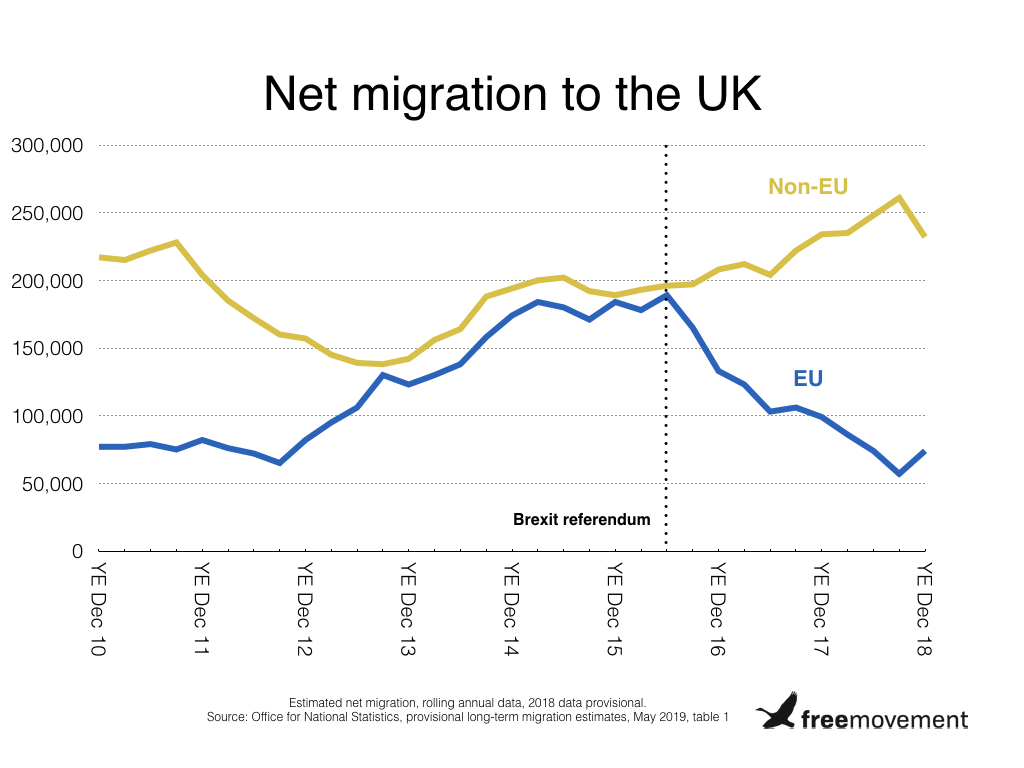
EU citizens who plan to stay are increasingly applying for British citizenship, rightly perceived as offering the most security in terms of the right to live in the UK.
British citizenship applications from EU nationals are at record levels. EU nationals now account for around one third of all applications for British nationality, double the rate two years ago. In the first quarter of this year, 18,000 applied — by far the highest on record. That works out at 200 people every single day.
The number of EU nationals granted British citizenship increased by 50% last year, from 32,000 in 2017 to 48,000 in 2018.
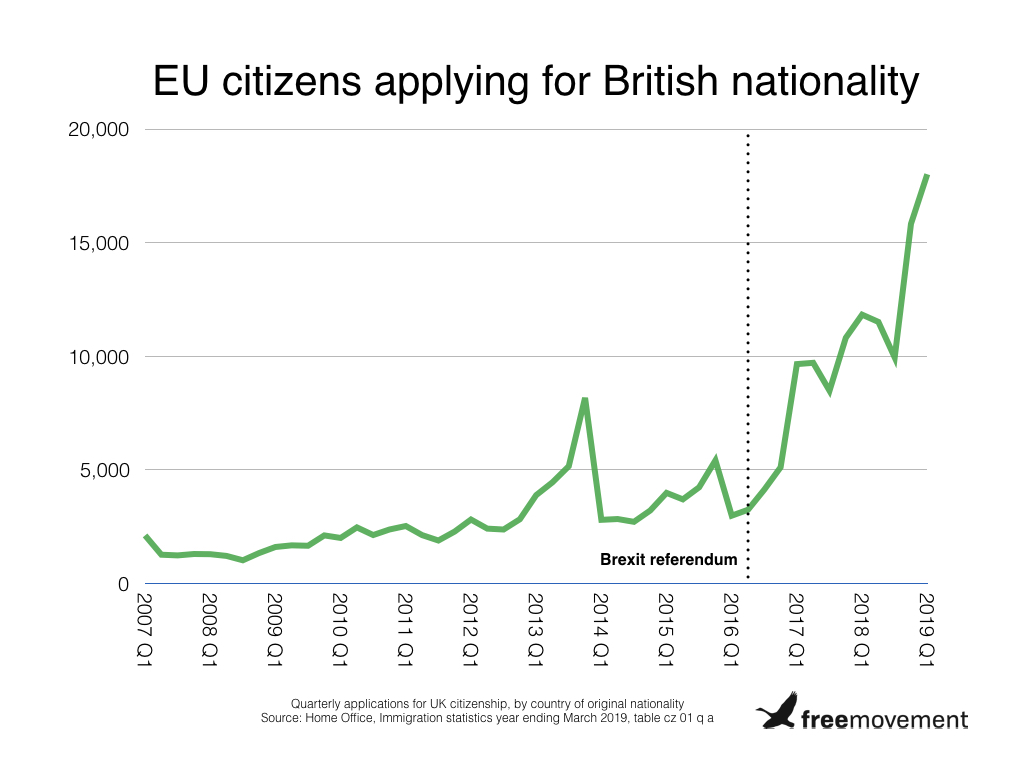
Under EU law, having a right to reside or the right to permanent residence does not require a visa application. The right exists independent of any documentary proof. Brexit has caused many more people to apply for documents for peace of mind.
The number of residence and permanent residence applications has fallen since the government announced a new Settlement Scheme that promises a much easier way of establishing the right to stay in the UK after Brexit, but is still far above the level seen before the vote. In 2018, the government processed around 245,000 residence document applications, compared to 90,000-100,000 in the few years before the referendum.
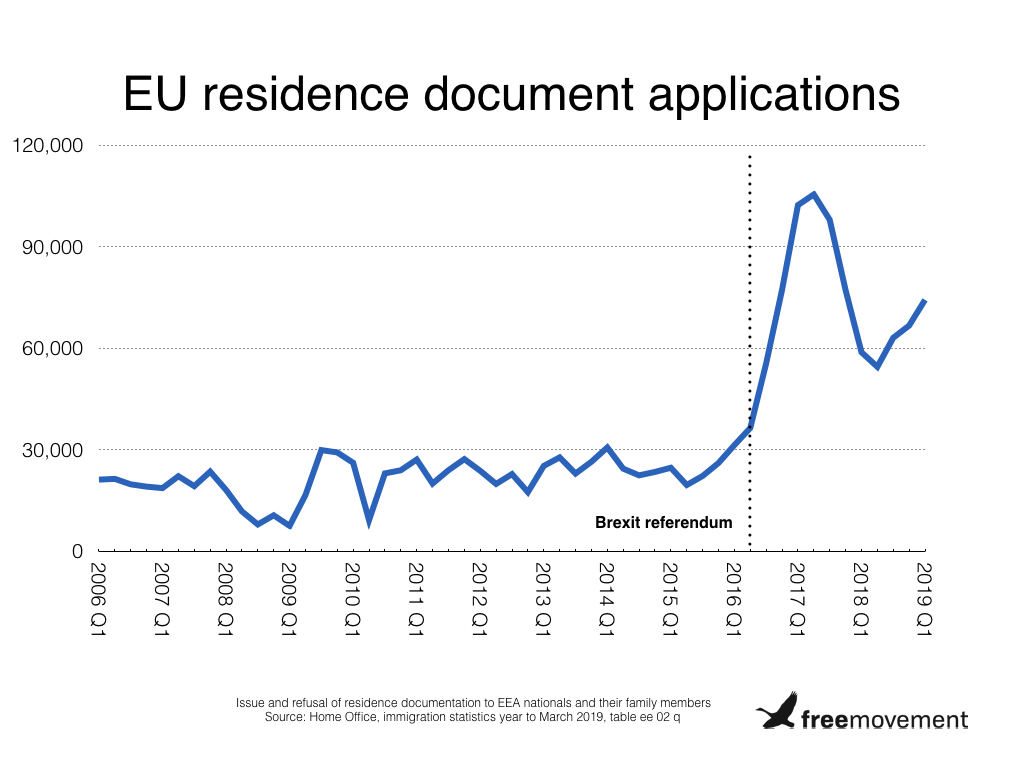
This doesn’t include applications to the EU Settlement Scheme. Around 750,000 people have applied so far, or about 20% of the eligible population.
We only know the breakdown by nationality for the 620,000 who applied up to 30 April 2019. The chart below gives a rough estimate of the application rate by nationality so far, comparing the Settlement Scheme data to official population estimates.
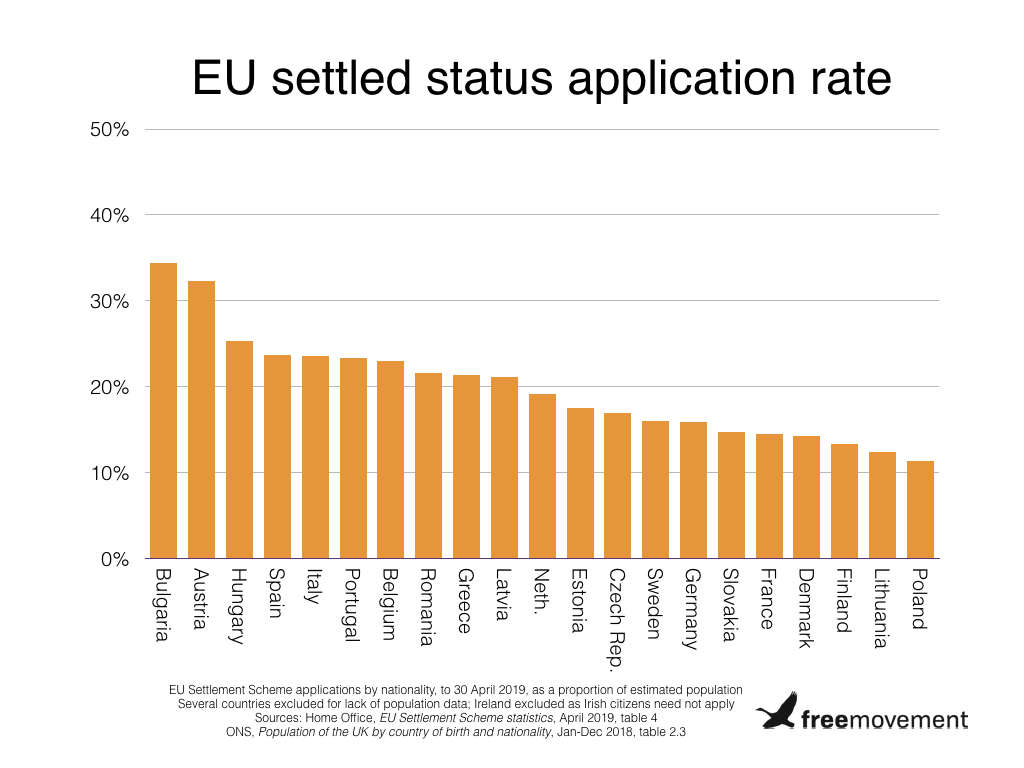
EU citizens who do not have the right to be in the UK face the hostile environment, immigration detention centres and removal from the country. Last year, almost 4,200 people from EU countries were held in detention centres, and 3,800 removed from the country altogether. With immigration rules for EU citizens set to get tougher after Brexit, those figures may well increase.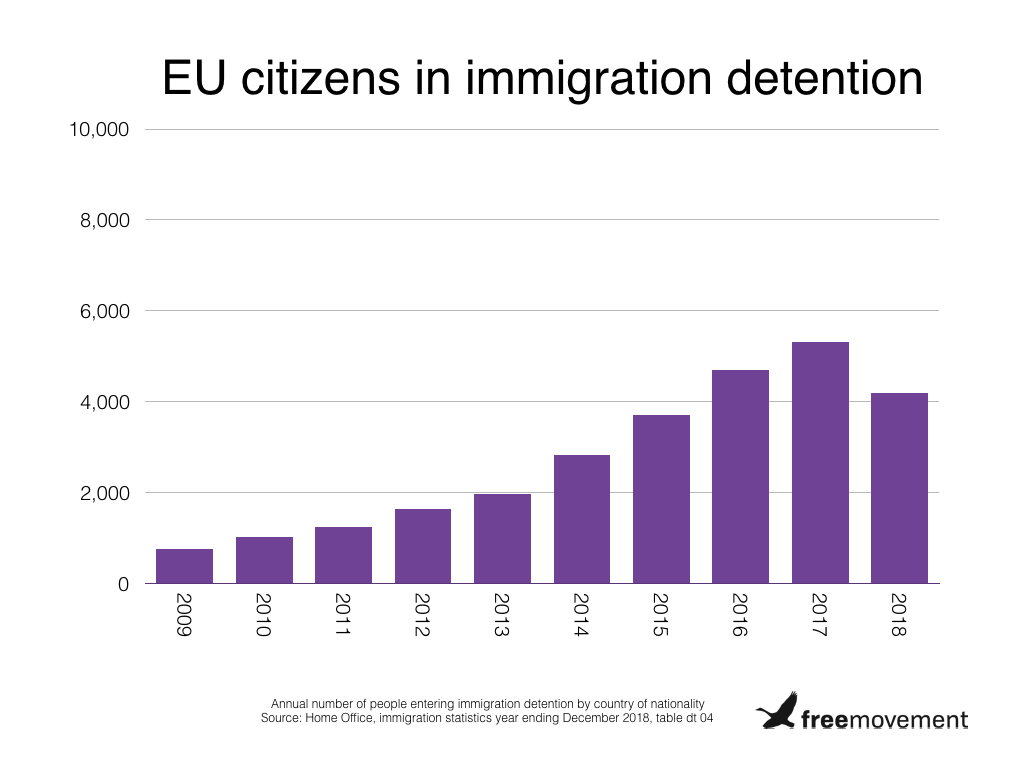
To make sure you get the latest Free Movement articles and updates on Brexit, sign up to our newsletter, selecting the “Brexit” option.
